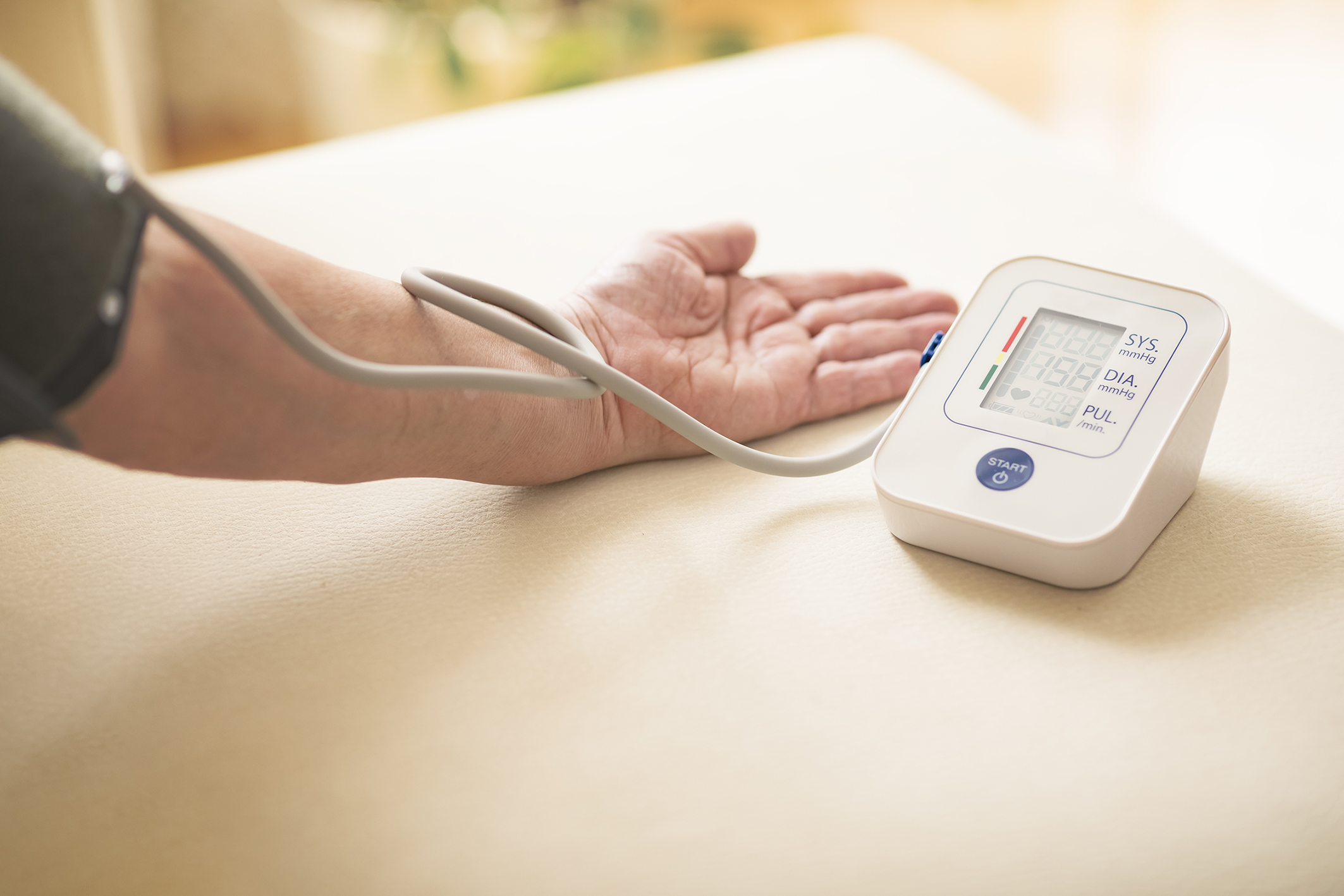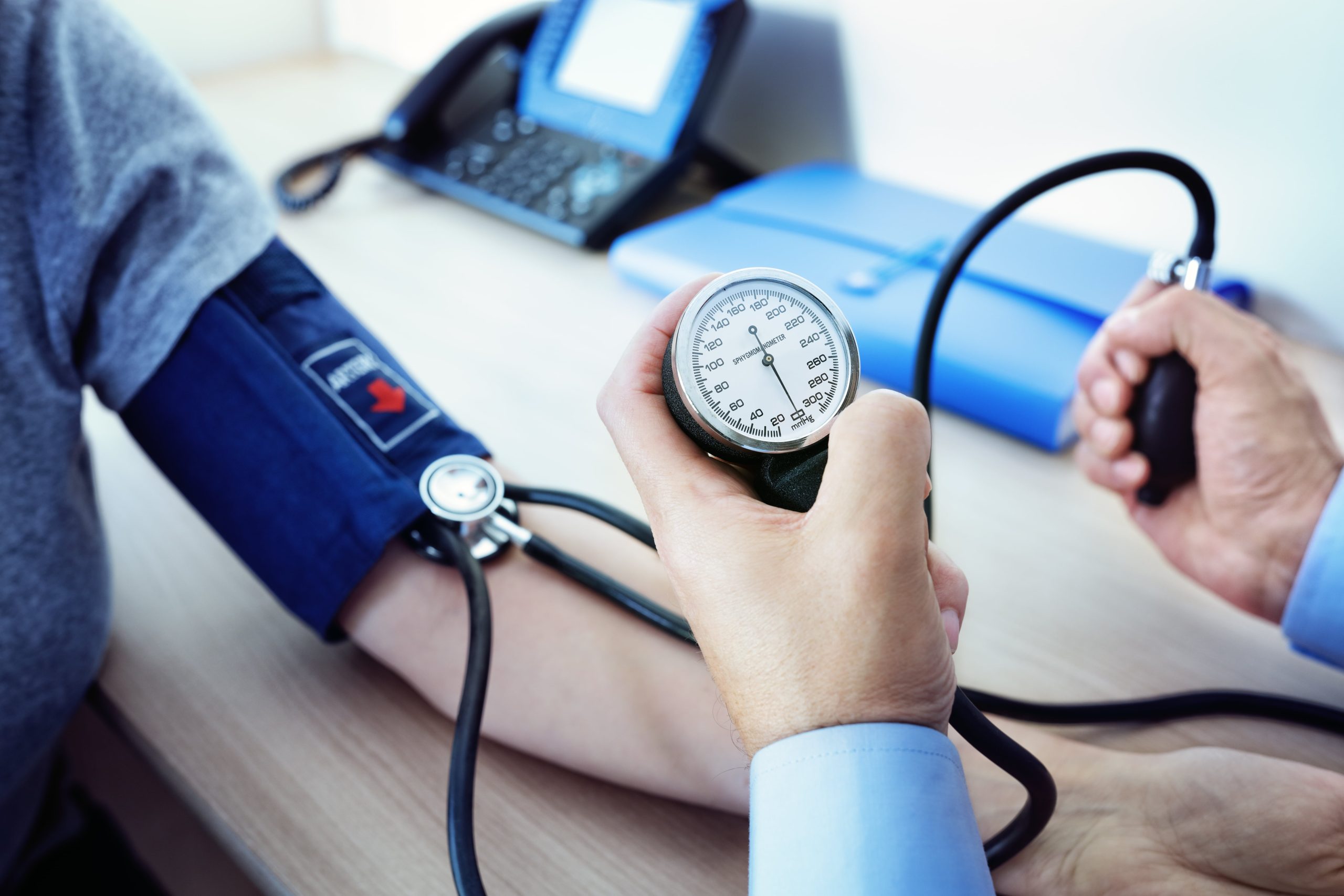Understanding High Blood Pressure: Causes, Symptoms, and Treatment
5 December 2022

Did you know that high blood pressure, also known as hypertension, affects millions of people worldwide? It’s a serious health condition that can lead to various complications if left unmanaged. In this comprehensive guide, we will delve into the causes, symptoms, and treatment options for high blood pressure. Whether you’re newly diagnosed or seeking to better understand this condition, this article will provide you with valuable insights and practical advice.
“Het is mogelijk om thuis zelf de eigen bloeddruk op te meten. Dit wordt soms aanbevolen als de bloeddruk bij de dokter vaak wisselend is. Ook bij het gebruik van bepaalde medicijnen wordt aanbevolen om thuis de meting te verrichten. “
What is High Blood Pressure?
High blood pressure occurs when the force of blood against the walls of your arteries is consistently too high. It is often referred to as the ‘silent killer’ because it rarely exhibits noticeable symptoms in its early stages. If left untreated, it can significantly increase the risk of heart disease, stroke, kidney problems, and other serious health issues.
Causes of High Blood Pressure
Understanding the causes of high blood pressure is essential in managing and preventing its occurrence. While the exact cause is often unknown, several factors contribute to its development:
- Lifestyle choices: unhealthy lifestyle habits such as a poor diet, lack of physical activity, excessive alcohol consumption, and smoking can increase the risk of developing high blood pressure.
- Family history: if you have a family history of high blood pressure, you may be genetically predisposed to developing the condition.
- Age: as we age, the risk of developing high blood pressure increases. This is often due to changes in blood vessel structure and function over time
- Underlying health conditions: Certain medical conditions, such as kidney disease, hormonal disorders, and sleep apnea, can contribute to high blood pressure.
High Blood Pressure Symptoms
High blood pressure is often asymptomatic, which means that many people may not realise they have it until they undergo a routine medical check-up. However, in some cases, certain symptoms and signs may indicate high blood pressure:
- Headaches: frequent or persistent headaches, particularly in the morning, can be a sign of high blood pressure.
- Blurred vision: If you experience sudden or recurring episodes of blurred vision, it could be a result of high blood pressure affecting your eye health.
- Chest pain: Chest pain or tightness may occur when the heart is not receiving enough oxygen-rich blood due to high blood pressure.
- Shortness of breath: Difficulty breathing or shortness of breath can be a symptom of high blood pressure-related heart problems.
It’s important to note that these symptoms can also be attributed to other health conditions. Thus, it’s crucial to consult with a healthcare professional for an accurate diagnosis.
Diagnosing High Blood Pressure
Diagnosing high blood pressure involves measuring your blood pressure using a sphygmomanometer, a device that consists of an inflatable cuff and a pressure gauge. The measurement is expressed in millimetres of mercury (mmHg) and consists of two values: systolic pressure over diastolic pressure.
A diagnosis of high blood pressure is typically made if your blood pressure readings consistently measure 130/80 mmHg or higher over multiple visits to the doctor.
Treatment and Management of High Blood Pressure
Fortunately, high blood pressure can be effectively managed through a combination of lifestyle changes, medication, and regular medical monitoring. Here are some essential strategies for managing high blood pressure:
- Adopting a healthy lifestyle: incorporate a balanced diet rich in fruits, vegetables, whole grains, and lean proteins. Engage in regular physical activity to improve cardiovascular health. Limit your sodium intake and avoid processed foods high in salt. Additionally, reduce alcohol consumption and quit smoking.
- Regular exercise: engage in moderate aerobic exercises such as brisk walking, cycling, or swimming for at least 150 minutes per week. Physical activity helps lower blood pressure and improves overall cardiovascular health.
- Weight management: maintain a healthy weight or work towards achieving a healthy weight if you’re overweight. Losing even a small amount of weight can have a significant impact on reducing blood pressure.
- Medication: in some cases, lifestyle changes alone may not be sufficient to control high blood pressure. Your healthcare provider may prescribe medications such as diuretics, beta blockers, ACE inhibitors, or calcium channel blockers to help manage your blood pressure levels effectively.
- Stress management: chronic stress can contribute to high blood pressure. Practice stress-reducing techniques such as meditation, deep breathing exercises, or engaging in hobbies and activities that you enjoy.
- Regular monitoring: keep track of your blood pressure at home using a home blood pressure monitor. Regular monitoring helps you and your healthcare provider determine the effectiveness of your treatment plan.
- Regular medical check-ups: schedule regular check-ups with your healthcare provider to monitor your blood pressure and assess your overall health. This allows for early detection of any changes or complications.
It’s crucial to work closely with your healthcare provider to develop an individualised treatment plan that suits your specific needs. They can provide personalised guidance and monitor your progress over time.
The Importance of Managing High Blood Pressure
Managing high blood pressure is vital for maintaining your overall health and reducing the risk of complications. Uncontrolled high blood pressure can lead to serious health conditions, including:
- Heart disease: high blood pressure puts a strain on the heart, increasing the risk of heart attack, heart failure, and other cardiovascular problems.
- Stroke: high blood pressure damages blood vessels, increasing the risk of blood clots that can lead to a stroke.
- Kidney disease: uncontrolled high blood pressure can damage the kidneys, leading to kidney failure or the need for dialysis.
- Vision loss: high blood pressure can damage the blood vessels in the eyes, potentially leading to vision problems or even blindness.
- Cognitive decline: Chronic high blood pressure is associated with an increased risk of cognitive impairment and dementia later in life.
By managing your blood pressure effectively, you can significantly reduce the risk of these complications and improve your quality of life.
High Blood Pressure: A Silent Threat
High blood pressure, often referred to as the ‘silent killer’, is a condition that can quietly wreak havoc on your health. Unlike other ailments that may present obvious symptoms, high blood pressure often goes unnoticed until it reaches dangerous levels or causes severe complications. This chapter explores why high blood pressure is such a silent threat and emphasises the importance of regular blood pressure monitoring.
The Stealthy Nature of High Blood Pressure
High blood pressure is insidious because it doesn’t announce itself with immediate and noticeable symptoms. People can go about their daily lives unaware that their blood pressure is steadily rising to dangerous levels. It’s like a silent intruder that slowly damages the body’s vital organs without giving any warning signs.
The Need for Regular Blood Pressure Monitoring
Given the silent nature of high blood pressure, regular monitoring is crucial. By routinely checking your blood pressure, you can catch any abnormalities early on and take appropriate measures to manage them. Whether you have a family history of high blood pressure or not, monitoring your blood pressure should be a priority for everyone, particularly as you age.
Understanding the Link Between Stress and High Blood Pressure
In today’s fast-paced and demanding world, stress has become an almost constant companion for many people. Unfortunately, chronic stress can contribute to the development and worsening of high blood pressure. In this chapter, we delve into the connection between stress and high blood pressure, and explore effective strategies for stress management.
The Stress Response and Blood Pressure
When you experience stress, your body releases hormones that trigger the ‘fight or flight’ response. This response causes your heart rate and blood pressure to rise temporarily. However, chronic stress can keep these levels elevated for extended periods, leading to sustained high blood pressure.
Effective Stress Management Techniques
Managing stress is essential for maintaining healthy blood pressure levels. Here are some effective techniques to help you manage and reduce stress:
- Exercise: engaging in regular physical activity releases endorphins, which are natural mood boosters. Exercise also helps reduce stress and lower blood pressure.
- Relaxation techniques: practising relaxation techniques such as deep breathing exercises, progressive muscle relaxation, and mindfulness meditation can help alleviate stress and promote a sense of calm.
- Social support: Connecting with loved ones, seeking support from friends and family, or joining support groups can provide an outlet for expressing emotions and finding solace during challenging times.
- Time management: prioritising tasks, setting realistic goals, and establishing boundaries can help reduce feelings of overwhelm and stress.
- Hobbies and leisure activities: Engaging in activities you enjoy, such as hobbies, art, music, or spending time in nature, can provide a much-needed break from stressors and promote relaxation.
Remember that managing stress is a continuous process, and different techniques work for different individuals. Find what works best for you and incorporate stress management into your daily routine.
Empowering Yourself: Taking Control of Your Blood Pressure
While high blood pressure may seem daunting, it’s important to remember that you have the power to take control of your health. By making informed choices, adopting a healthy lifestyle, and following the guidance of healthcare professionals, you can effectively manage your blood pressure and minimise the associated risks. In this chapter, we discuss empowering strategies to help you take control of your blood pressure.
Education and Awareness
Understanding the ins and outs of high blood pressure is the first step toward empowerment. Educate yourself about the condition, its causes, and the impact it can have on your overall health. Stay updated on the latest research and guidelines, and seek reliable sources of information to inform your decisions.
Collaborate with Healthcare Professionals
Develop a collaborative relationship with your healthcare provider. Regularly visit them for check-ups, share your concerns, and actively participate in the decision-making process regarding your treatment plan. Ask questions, seek clarification, and discuss any lifestyle changes or medications that may be necessary to manage your blood pressure effectively.
Adopting Healthy Lifestyle Habits
Lifestyle plays a significant role in managing high blood pressure. By adopting healthy habits, you can make a positive impact on your blood pressure levels. Consider the following:
- Eating a balanced diet: opt for a diet rich in fruits, vegetables, whole grains, lean proteins, and low-fat dairy products. Reduce your intake of sodium, saturated fats, and added sugars.
- Engaging in regular physical activity: aim for at least 150 minutes of moderate-intensity aerobic exercise each week. This can include activities such as brisk walking, jogging, swimming, or cycling. Additionally, incorporate strength training exercises into your routine.
- Limiting alcohol consumption: if you drink alcohol, do so in moderation. For men, this means consuming no more than two standard drinks per day, and for women, no more than one standard drink per day.
- Quitting smoking: smoking not only increases your risk of high blood pressure but also contributes to other serious health issues. Seek support and resources to quit smoking and improve your overall health.
Building a Support Network
Surrounding yourself with a supportive network of family, friends, or support groups can make a significant difference in managing high blood pressure. They can provide encouragement, accountability, and understanding as you navigate the challenges of maintaining a healthy lifestyle and managing your blood pressure effectively.
Monitoring Your Blood Pressure at Home
Investing in a home blood pressure monitor allows you to monitor your blood pressure regularly and keep track of any fluctuations. This empowers you to be proactive and provides valuable information for discussions with your healthcare provider.
Celebrating Small Victories
Managing high blood pressure is a journey, and progress should be celebrated along the way. Recognise and appreciate the positive changes you make, even if they seem small. Each step forward brings you closer to maintaining healthy blood pressure levels and improving your overall well-being.
High Blood Pressure at Different Stages of Life
High blood pressure can affect individuals at various stages of life, from childhood to older adulthood. This chapter explores the unique considerations and challenges associated with high blood pressure at different stages of life and offers guidance for managing blood pressure effectively.
High Blood Pressure in Childhood and Adolescence
While high blood pressure is commonly associated with adults, it can also affect children and adolescents. The prevalence of high blood pressure in younger populations has been increasing due to factors such as poor diet, sedentary lifestyles, and obesity. Early detection and intervention are crucial to prevent long-term complications. Parents and caregivers should:
- Encourage a healthy and balanced diet, rich in fruits, vegetables, and whole grains.
- Promote regular physical activity and limit sedentary behaviours such as excessive screen time.
- Encourage regular blood pressure screenings during routine check-ups.
- Foster a supportive environment for stress management and emotional well-being.
- Seek medical attention if there are signs of high blood pressure, such as persistent headaches or unexplained fatigue.
High Blood Pressure in Older Adults
As individuals age, the risk of developing high blood pressure increases. This is primarily due to changes in the cardiovascular system and the cumulative effects of other health conditions. Older adults should take the following steps to manage their blood pressure effectively:
- Follow a heart-healthy diet that includes foods low in sodium and saturated fats.
- Engage in regular physical activity that is appropriate for their fitness level.
- Adhere to medication regimens as prescribed by their healthcare provider.
- Monitor blood pressure regularly and consult with healthcare professionals to adjust treatment plans if necessary.
- Be mindful of potential interactions between blood pressure medications and other medications they may be taking.
- Stay socially active and maintain a strong support system to promote emotional well-being.
It’s important to remember that blood pressure management should be tailored to the specific needs of each age group. Regular check-ups and open communication with healthcare providers are essential for effective management.
The Impact of Lifestyle on High Blood Pressure
Lifestyle factors play a significant role in the development and management of high blood pressure. This chapter explores key lifestyle choices and their impact on blood pressure, highlighting the importance of making positive changes to promote cardiovascular health.
Diet and Nutrition
A healthy diet is crucial for maintaining optimal blood pressure levels. Consider the following dietary recommendations:
- Reduce sodium intake: excessive sodium consumption can contribute to high blood pressure. Limit processed foods, fast food, and salty snacks, and opt for fresh, whole foods seasoned with herbs and spices instead.
- Increase potassium-rich foods: Potassium helps counteract the effects of sodium. Include foods such as bananas, avocados, leafy greens, and sweet potatoes in your diet.
- Adopt the DASH diet: The Dietary Approaches to Stop Hypertension (DASH) diet emphasises fruits, vegetables, whole grains, lean proteins, and low-fat dairy products while limiting sodium and saturated fats.
Physical Activity
Regular exercise has numerous benefits for blood pressure management. Here’s how physical activity can positively impact blood pressure:
- Lowering resting blood pressure: engaging in aerobic exercises, such as walking, jogging, or swimming, can help lower resting blood pressure over time.
- Improving cardiovascular health: physical activity strengthens the heart and promotes more efficient blood flow, reducing the strain on blood vessels.
- Promoting weight loss: exercise, combined with a healthy diet, can contribute to weight loss or weight maintenance, which is crucial for blood pressure management.
Stress Management
Chronic stress can contribute to high blood pressure. Implementing stress management techniques can have a significant impact on overall cardiovascular health:
- Mindfulness and meditation: practices such as mindfulness meditation, deep breathing exercises, and yoga can help reduce stress levels and promote relaxation.
- Regular exercise: physical activity not only benefits blood pressure but also serves as a stress reliever. Find activities that you enjoy and incorporate them into your routine.
- Social support: maintaining strong relationships and seeking support from loved ones can provide emotional support and help manage stress.
- Hobbies and recreation: engaging in activities you enjoy, such as hobbies, arts, or spending time in nature, can provide a much-needed break from daily stressors.
Limiting Alcohol and Quitting Smoking
Excessive alcohol consumption and smoking are detrimental to blood pressure and overall cardiovascular health. Consider quitting smoking. Smoking damages blood vessels, raises blood pressure, and significantly increases the risk of heart disease. Seek resources and support to quit smoking and improve your overall health.
By making positive changes in your lifestyle, such as adopting a healthy diet, engaging in regular physical activity, managing stress, limiting alcohol intake, and quitting smoking, you can significantly reduce the risk of developing high blood pressure and improve your overall cardiovascular health.
Proactive Managemen
High blood pressure is a serious condition that requires proactive management at every stage of life. By understanding the unique considerations associated with high blood pressure in different age groups, and by making positive lifestyle changes, you can effectively manage your blood pressure and reduce the risk of complications. Regular check-ups, collaboration with healthcare professionals, and adherence to treatment plans are essential. Remember, by taking control of your lifestyle choices, you have the power to protect your heart and lead a healthier, more fulfilling life. Prioritise your well-being, stay informed, and embrace the journey toward managing high blood pressure with confidence.



You may like these too
“The Hidden Dangers of Varicose Veins: When Ornate Legs Are in Danger”
Discover the unexpected causes, symptoms, and latest varicose vein treatments that can affect your h
24 January 2025
“The Inaudible Burden: How Tinnitus Can Change Your Life”
“Discover the hidden battle against the constant buzz in your ears and learn how to rega
24 January 2025
“Migraine: More than just headaches”
“Discover the hidden causes, effective treatments and tips to overcome the daily battle agains
24 January 2025
How to Lower My High Cholesterol:Tips and Advice for a Healthier Heart
Cholesterol is a common health problem that can lead to serious complications such as cardiovascular
17 April 2024



